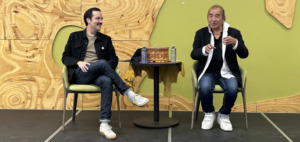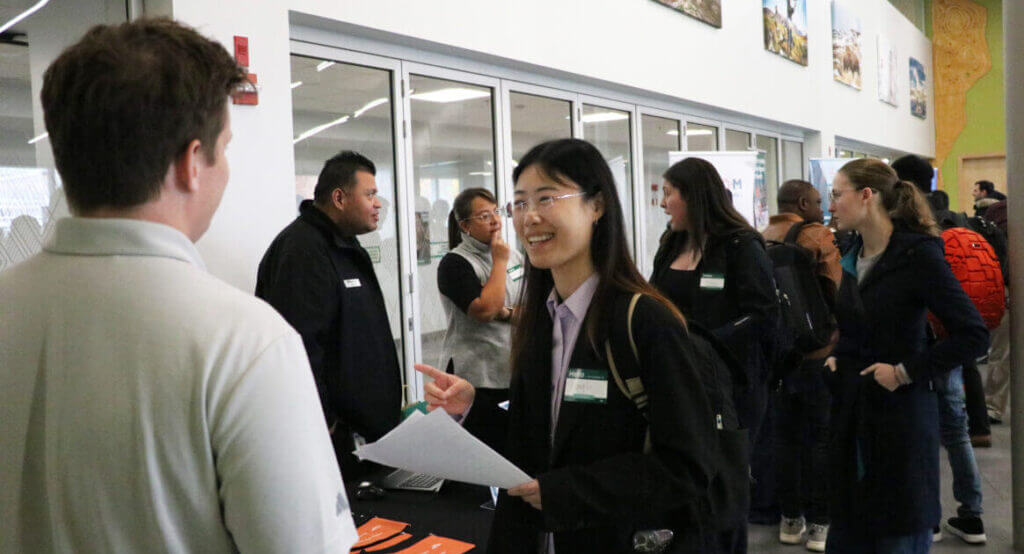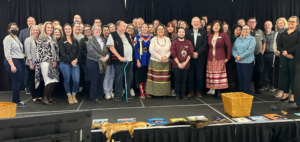Posted on Monday, November 4th, 2024
On Wednesday, Oct. 30, Algonquin College welcomed novelist, playwright, musician and composer Tomson Highway to the Ottawa Campus as part of its Indigenous Leader Speaker Series.
Campus as part of its Indigenous Leader Speaker Series.
In a lively and unstructured conversation, Highway shared animated stories about his upbringing, his life experiences, working collaboratively with other artists and his views on nature and the environment. Read more >
Posted on Friday, November 1st, 2024
On October 29, the Co-op and Career Centre proudly hosted its first-ever Co-op Job Fair exclusively for engineering programs. This event was designed to connect Algonquin College’s engineering talent with top employers in the region, providing a unique opportunity for students to secure co-op positions for Winter 2025.

Algonquin College engineering students meet with Ottawa’s Top Employers at inaugural Engineering Co-op Job Fair.
Read more >
Posted on Tuesday, October 29th, 2024
On Friday, Oct. 25, the Indigenous Initiatives Office hosted a knowledge exchange conference to engage and share new experiences with Algonquin College employees, learners and community members.
Algonquin College employees, learners and community members.
“By incorporating Indigenous content, inviting guest speakers and organizing cultural activities, we strive to provide a well-rounded education that respects and reflects Indigenous world views,” said Algonquin College President and CEO Claude Brulé. “Our aim is to enrich the learning experience for all students, fostering understanding, empathy and respect for Indigenous cultures, languages and traditions.” Read more >
 Campus as part of its Indigenous Leader Speaker Series.
Campus as part of its Indigenous Leader Speaker Series. 
 Algonquin College employees, learners and community members.
Algonquin College employees, learners and community members.